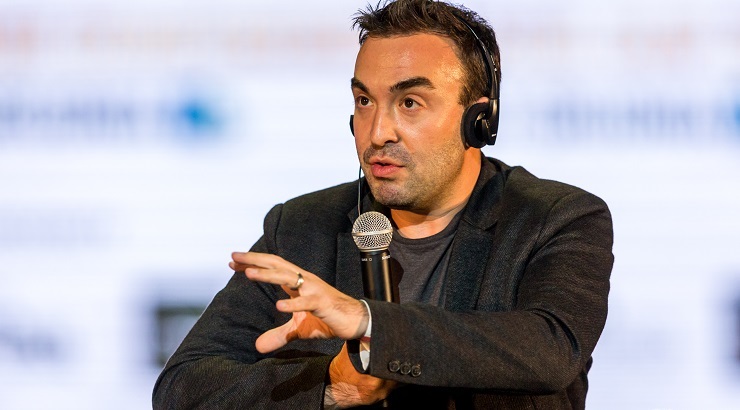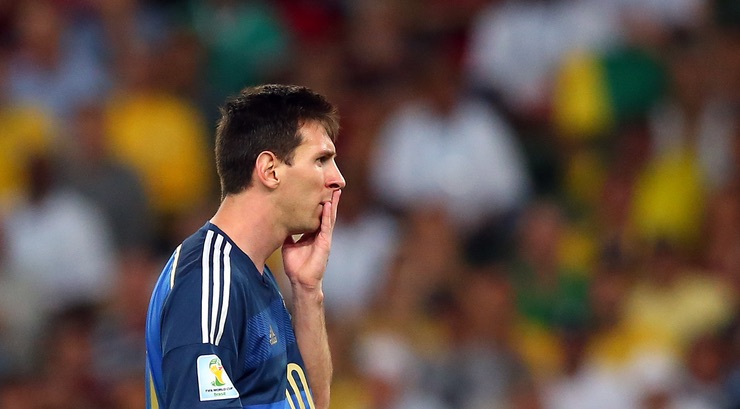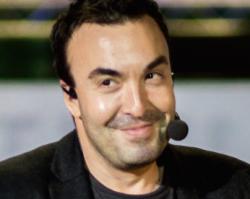Expert Info on How To Be Great Soccer Parents – Part II
Global sports psychologist and author specializing in soccer, Dan Abrahams is based in England and has helped hundreds of professional soccer players – many of them who play in the English Premier League (EPL). Players from Crystal Palace, QPR, Fulham, and West Ham United among other clubs have benefited from Abrahams insights and advice.
As a regular columnist for SoccerToday, Abrahams wants to help youth soccer coaches and players reach their highest levels of development. Abrahams also wants to help soccer parents understand what it takes to be successful at every level of this highly competitive field of dreams.
Soccer parents, if your child is somewhere between 6 and 10 and just LOVES soccer – then playing soccer with them in your backyard or nearby park is important. Please read Part I and Expert Info on How To Be Great Soccer Parents – Part III

Part II
Youth Soccer News: It’s tough being a soccer parent, especially if your child has ambitions for his or her game.
Soccer Parents: Let’s begin at the beginning.
Tips for parents whose Soccer Players are 11 to 15 years old
So the game is becoming more serious. Your child is somewhere between 11 and 15 and he or she still loves it … still dreams of playing soccer at the very top level. Your youth soccer player yearns to improve — Still looks towards heroes in soccer and wants to be like them.
As your young soccer player is now 11 to 13-years-of-age and becomes more serious:
But let me tell you this … let me get this across with as much clarity as possible.
At 11, 12 and 13 years of age very little changes.
The game is still about fun, physical literacy and life skills. Your child must still love to have a ball at his or her feet.
That thrill of having a ball next to them must still wash through every bone in their body.
That’s important — that’s the feeling that makes the game last a lifetime. They must also still use their experiences in soccer to become more accomplished player … agile, balanced and co-ordinated. As they grow through their early teenage years, so their physical literacy must mature with them.
And, those life skills are even more pertinent now. As your child becomes a teenager and develops a stronger sense of self than empathy, team work and discipline — to name but a few — are soft skills that must be experienced, used and even misused at times.
By playing soccer, they get to experience team work — they get an opportunity to enjoy winning and to learn how to cope with losses. They can learn key communication skills with those in power. A draft of their interpersonal and intrapersonal abilities and capabilities are drawn up at this stage of their life
So, between 11 and 15 soccer builds on, reinforces and solidifies what kids learn from the game between 6 and 10.
When serious enthusiasm lingers, as a soccer parent, you can start to prepare for their future in the game. As your child matured, their skill level becomes more important. That first touch, dribbling, close ball control, passing, shooting … so these skills must be improved.
It is wonderful to keep those backyard games going that I discussed in Part I. And where you can, encourage other kids to these informal sessions. I say ‘others’ because skill isn’t developed in a vacuum of self.
Skill can’t just be developed alone. You need others involved – you need 1 V 1 garden games and 2 V 2 games. If possible 3, 4 and 5 kids.
Cones aren’t enough – your youth soccer player needs live opponents to really help his or her nervous system develop the kind of skill that separates him or her from the rest.
Your player needs to be exposed to decision making and creative problem solving.
The presence of other players and the competition they bring will help bring about this process — and this is not the same as organized soccer team practice.
Just imagine it now, your child with her friends playing in your back yard. They’ll have fun and will keep it competitive — kids always play competitively. They’ll make up games. Games that deny space. Games that require great footwork, accurate passing and a dead aim for goal. And they’ll keep playing. They’ll go a goal down and keep playing. They’ll go a goal up and keep playing. They’ll try all kinds of different moves to out fox their opponents … their friends.
This is how young soccer players learn skill. This is how they learn performance. This is how they learn mental toughness. This is how they learn to win.
So backyard games … with others! That’s a powerful combination.
As your youth soccer player becomes a teenager and plays competitive youth soccer:
During this time your child may become more heavily involved in club youth soccer. This brings with it some challenges.
In general, let the coaches coach. They’re the experts and they will have your child’s best interests at heart. Some make misguided decisions — just as some sport psychs do as well … they’re only human, so be tolerant and be fair. If you really don’t like the way your child is being coached get a second or even a third opinion. Talk to the Director of Coaching at your soccer club.
I’m often receiving messages from disgruntled parents because their child has been dropped because of their height. If your child is small … perhaps the smallest in the group? Find patience. Patience, patience, patience.

Support your youth soccer player to be courageous. Ask them what fearless looks like? Feels like? If your youth player isn’t included because they’re small then be delighted to run a mile from the coach and club that allows this to happen. They don’t know what they’re talking about — let alone know what they’re doing! They’re cowards who don’t understand that soccer is about space and time, as well as expression, ball skills and decision making plus self-awareness. That is what soccer is about. That is what the best Europeans are. That is what the best South Americans do.
So don’t sweat physicality. Soccer is a late specialisation sport. Your player will develop the strength … eventually!
As they reach 14 and 15, if you can, help them compete against older kids.
The challenge playing ‘up’ against older player will be enormous, but worth it. They have to think quicker and act faster. They have to anticipate and react lightning fast. They have to look up more and act on what they see. The mental and physical pressure will do wonders for their soccer brain. It will suffocate them and stretch them.
Stretch is good. Stretch hurts but is necessary for improvement.
At 14 and 15 stretch is a necessity … but so is support.
So support them. Give them a hug when they lose … and they will lose. And tell them it’s ok when they’ve played badly … because they will play badly.

In fact, you want them to lose and you want them to play badly. These are the years they learn that all important blueprint for resilience.
There’s an obsession with kids winning and playing well all the time.
This is a myth … a big fat lie that helps misguided coaches and parents feel good about themselves.
It’s your child’s game so let them play … let them win and lose, succeed and fail. These kaleidoscope of experiences will help them later in life.
There’s more…a lot more. Read Part 3.
The kind of techniques I’m going to discuss in part three are the type you can use with middle teens, just as much as with older teens.
Related Articles: Dan Abrahams on SoccerToday






